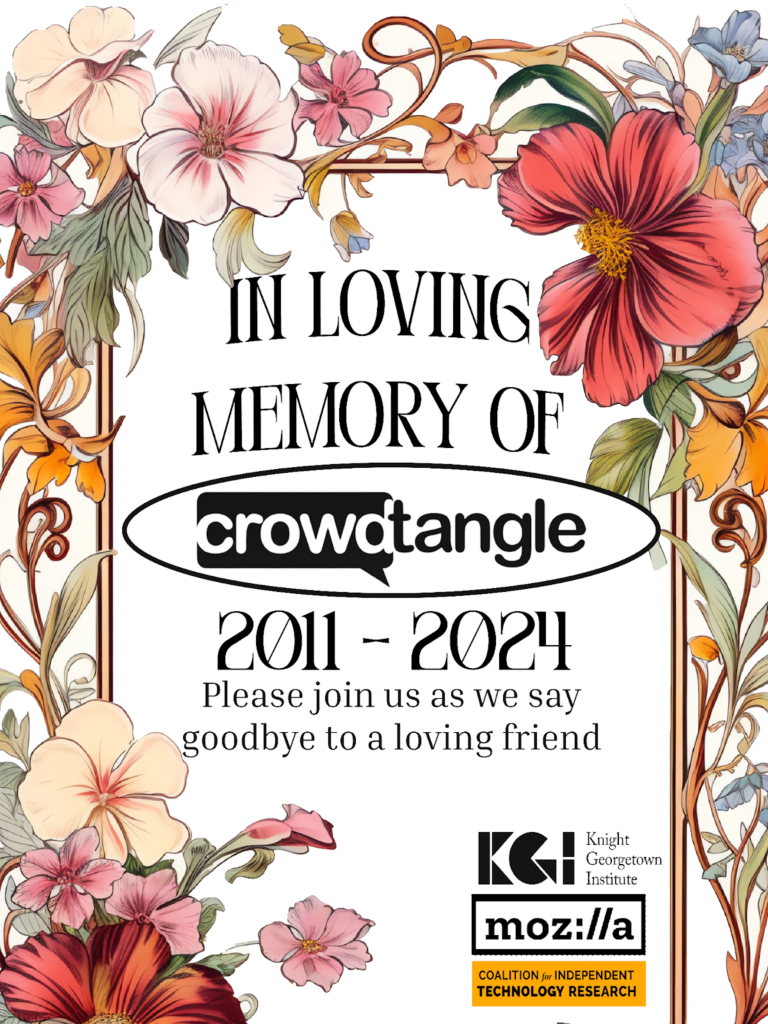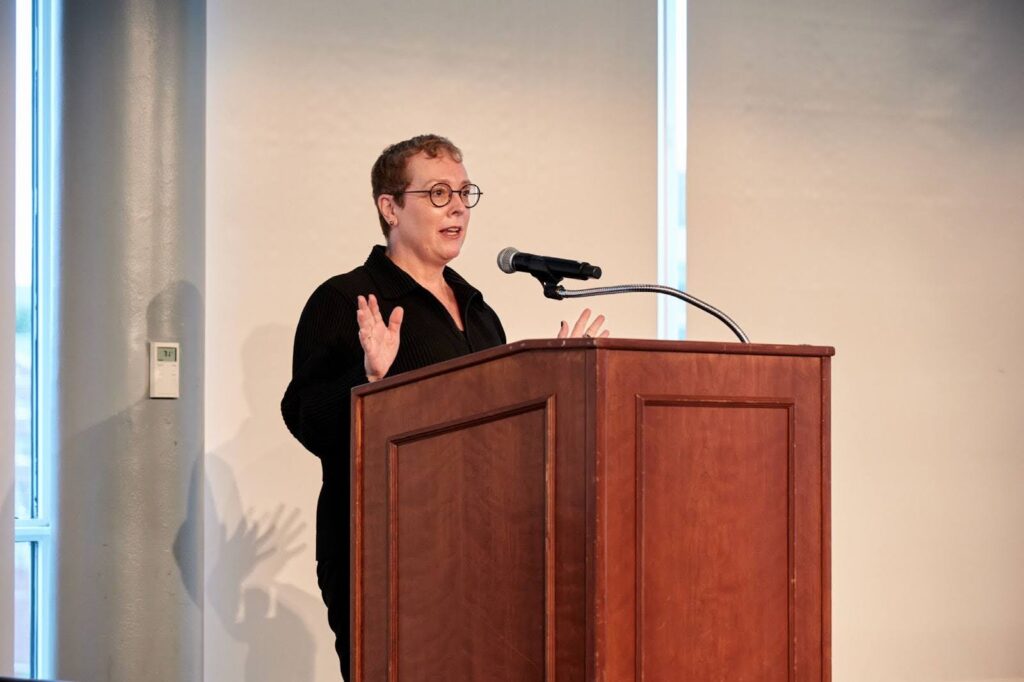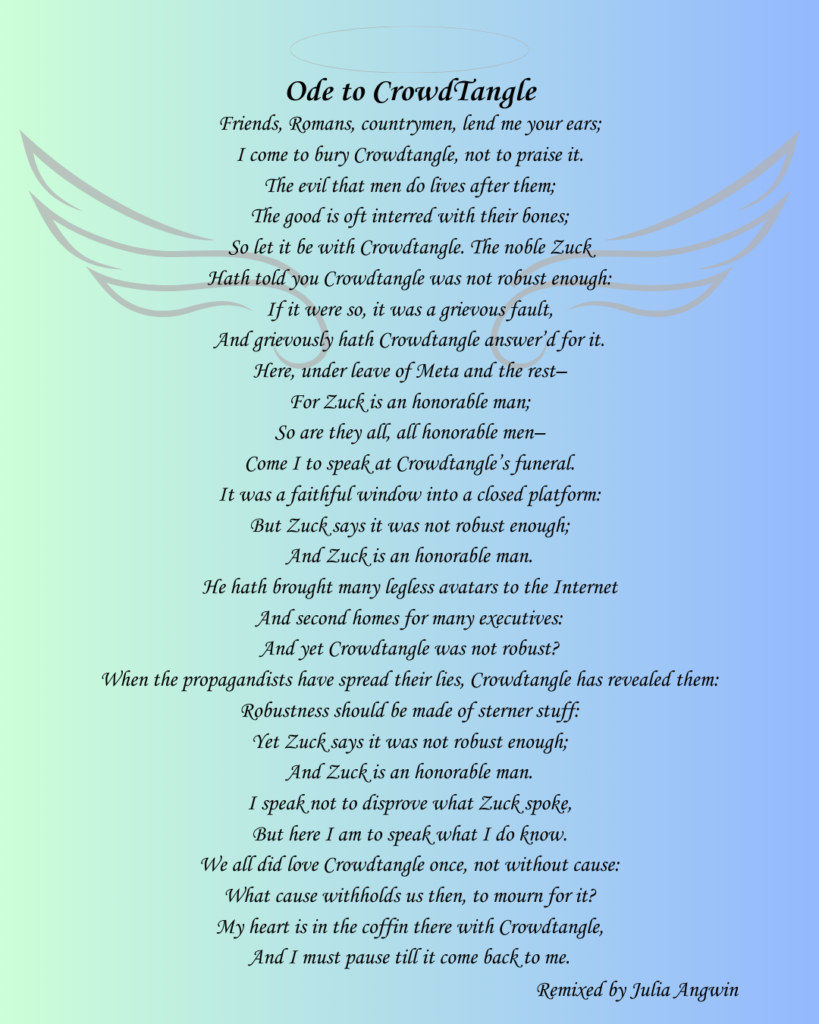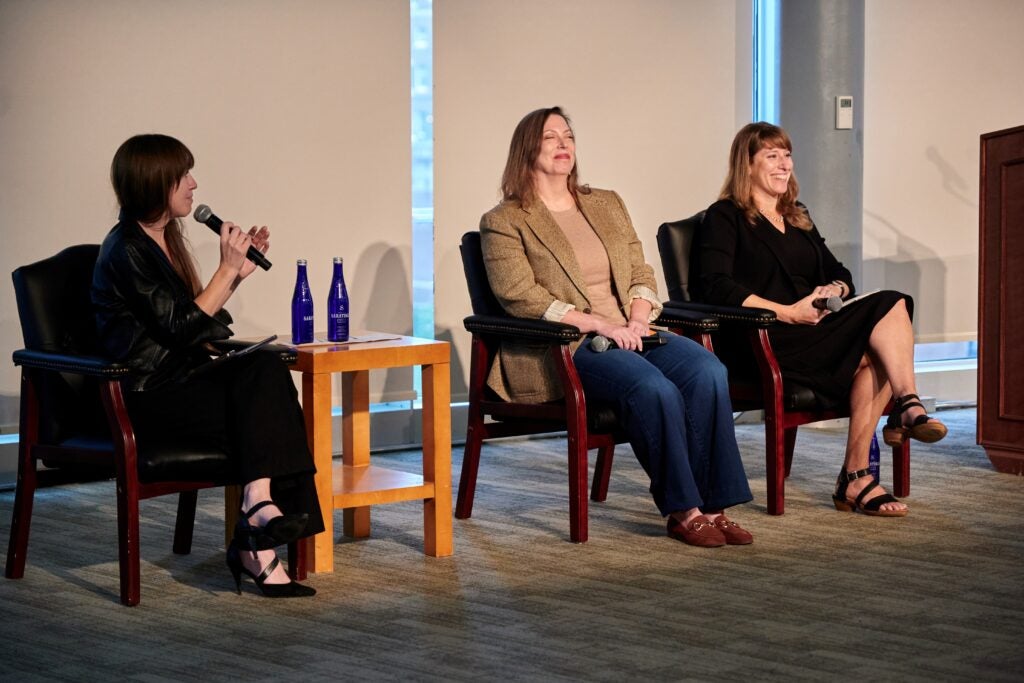The CrowdTangle Funeral
A Celebration of Life and the Untimely Death of CrowdTangle and Other Transparency Tools

October 21, 2024
By Leticia Bode and Peter Chapman
Last month, a diverse community gathered to mourn the loss of CrowdTangle, Meta’s transparency tool that the company killed on August 14, 2024.
CrowdTangle meant so much to many researchers, scholars, advocates and the broader public. CrowdTangle, alongside similar, now-defunct tools and access points to analyze public social media data at Twitter/X and Reddit, have been essential for understanding many pressing information and communication issues taking place in online social spaces. CrowdTangle helped us track and understand misinformation, monitor human rights abuses, and generate news that people care about. Read more testimonials of how and why CrowdTangle mattered, here: https://www.ripcrowdtangle.com/.
The CrowdTangle funeral, co-organized by the Knight-Georgetown Institute, the Center for Independent Technology Research and the Mozilla Foundation, began with collective mourning. Associate professor and funeral host, Dave Karpf, acknowledged “It is a little weird holding a funeral for a piece of software.” But speakers lined up to describe how their work depended on this critical piece of software. Renowned technology journalist Julia Angwin delivered a moving eulogy highlighting the importance of CrowdTangle’s life. She reminded us that “Crowdtangle did something essential: it allowed us to see what was on the public’s newsstand,” becoming “the best and only way to get a sense of what was happening on the biggest and most important social platform, Facebook.”

Tied up in this importance was not only grief at the loss of CrowdTangle, but also the stinging reminder of why Meta chose to end access to CrowdTangle. Her “Ode to CrowdTangle” perfectly captured this spirit.

Other mourners described CrowdTangle “as a facilitator of sunlight to peer into the shadows in the corners of the largest social media platform in the United States” (Jennifer Stromer-Galley, Syracuse University), “the resident know-it-all” (Ellen Jacobs, Institute for Strategic Dialogue), and “a grandma with all the best insights” (Hallie Stern, McCain Institute).
CrowdTangle was critical for “monitoring human rights discourse on social media” (Jule Kruger, Amnesty International), for “tracking political candidates and their efforts to persuade, and sometimes deceive, the public” (Jennifer Stromer-Galley), and “crucial for accountability” (Jule Kruger). As Rachelle Faust, National Democratic Institute summed up, “Thank you to CrowdTangle for your service, your insights, and the many ways you enriched our understanding of the digital world. You’ll be greatly missed, but never forgotten.
CrowdTangle’s demise is not the end of efforts to ensure public access to public platform data. A panel discussion moderated by Brandi Geurkink of the Coalition for Independent Technology Research underscored that a broad range of researchers and advocates are working to enable new forms of research that strengthens our collective understanding of the impacts of these platforms.

Rebekah Tromble from George Washington University shared how the Digital Services Act in Europe has compelled platforms to open up data to researchers. Rebecca is working with the European Digital Media Observatory to support the creation of an intermediary body between platforms and researchers to enable more systematic platform access while ensuring independence and transparency.
Nadine Farid-Johnson of the Knight First Amendment Institute at Columbia University, focused on the importance of protecting researchers – a “legal safe harbor for research in the public interest” – in their efforts to gain access to data. Nadine highlighted that “accountability comes from knowledge and understanding.” She quoted from a recent case in the United States that argued that “giving social media platforms free reign to decide on any basis who can collect and use data – data that the companies do not own, that they otherwise make publicly available to viewers, and that the companies themselves collect and use, risks the possible creation of information monopolies that would disserve the public interest.”
Alissa Cooper, executive director of KGI, previewed KGI’s efforts to develop a Gold Standard for Public Data Access. KGI will convene a collaborative process to develop a Gold Standard that will “articulate in a cross-platform way what the data needs are for public accountability.” This effort will begin with defining public data, establishing the formats that data needs to be made available, timelines as well as necessary infrastructure. The Gold Standard Initiative is designed to “articulate a uniform cross-industry framework that will allow for an understanding of the online information environment not mediated by platform controlled silos.” Alissa further highlighted the “broad interest across the political spectrum in advancing accountability” for technology. Transparency, accountability and data access are directly linked. You can read more about KGI’s Gold Standard here.
Now is the time for collective action to guarantee effective access to data. As Tromble put it, “the research community needs to come together to make this functional.” Cooper highlighted the need for “a real diversity of perspectives” in developing standards for what public data access should look like. Participants left energized and ready to work for greater transparency, access, and accountability.
To listen to excerpts of the funeral, check out Tech Policy Press’s podcast coverage here.